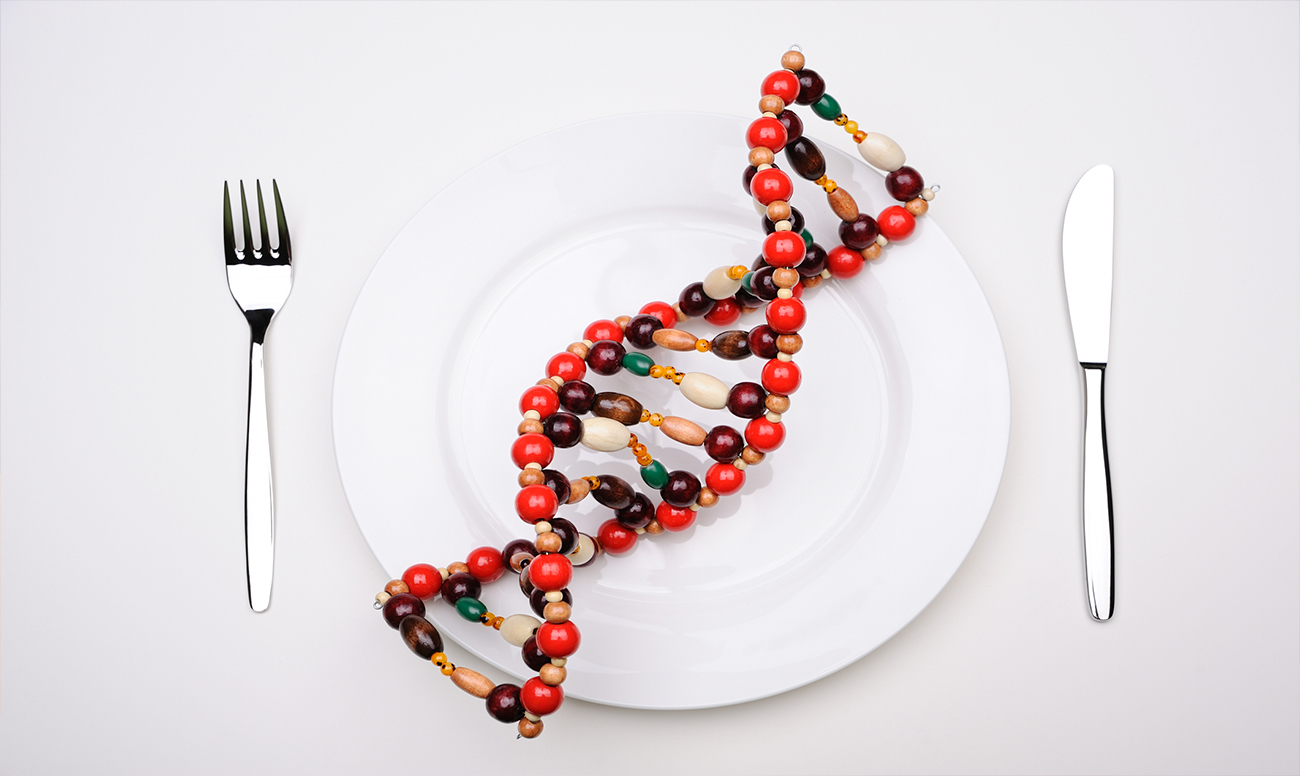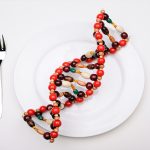
Achieving Better Health Through Your DNA
Why individuals experience different health outcomes even though they eat similar diets and practice comparable lifestyles is an important question that’s been on the minds of nutrition and other healthcare experts in the medical community for decades. If we have two men of the same age who eat a diet low in fruits and vegetables and high in sodium and saturated fat. One develops hypertension, hypercholesterolemia, and eventually atherosclerosis, while the other lives a long life without such chronic disease. We know now for sure that the answer lies in our DNA.
Can your DNA tell you about your diet, lifestyle, and fitness?
The relationship between what you eat and your genes is given the term Nutrigenomics or Nutrigenetics. The Science of Nutrigenetics is based on the fact that all humans are almost 99.9% genetically identical with genetic variation that occurs in about 0.1% of our genes. These changes in the DNA sequence are called genetic polymorphisms or Single Nucleotide Polymorphisms (SNPs). This knowledge can be applied to offer people personalized nutrition based on their genetic makeup in order to live a healthy and vital life.
How can these SNPs impact greatly our body metabolism?
These naturally occurring variations (mutations) makes everyone one of us unique in terms of how we handle nutrients, toxins, respond to exercise and our liability to develop diseases. Our genetic makeup influences different body systems like the cardiovascular system and body muscles; it also affects the fat and sugar metabolism, food allergies and intolerance as well as substance dependences and caffeine metabolism. Some people poorly metabolize certain nutrients (Vitamins, minerals, caffeine, nicotine,…) which implies to take certain measures to prevent the development of some diseases.
How can Nutrigenetics help me to live a healthy perfect life?
Preventing chronic disease based on genetic makeup
Heart diseases, atherosclerosis, thrombosis as well as stroke may result from elevated levels of homocysteine in the blood. Inadequate nutrition and gene diversity contribute greatly to the elevated homocysteine level in the blood. By using adequate nutrition and dietary food supplements that contain vitamins B12, B6 and folic acid, the level of homocysteine can be reduced. Therefore, genetic analysis is very useful in identifying mutant genes responsible for homocysteine metabolism and in taking the proper nutrients to prevent the consequent complications.
On the other hand, hundreds of genes are involved in the regulation of insulin secretion and glucose metabolism. Specific gene variants directly affect those processes, which is the reason why some people are particularly prone to the development of diabetes. Type I Diabetes mellitus, develops when there is a decrease in insulin release with elevation in the blood glucose level, while type II diabetes occurs because the insulin that is produced has a reduced effect (insulin resistance). For example, genetic polymorphisms/variation in TCF7L2 gene renders individuals more prone to type II diabetes, therefore they must pay more attention to their diet and follow healthy lifestyle recommendations.
Many individuals are suffering from food allergies and intolerances. Some people experience abnormal pain and digestion problems after drinking a single glass of milk which is due to their inability to break down milk sugar – lactose. This is called lactose intolerance. Certain racial groups are known not to tolerate milk and the incidence of lactose intolerance in the Mediterranean countries is approximately 15 times higher compared to European countries. Recently, scientists have identified a genetic polymorphism in the MCM6 gene that encodes an enzyme called lactase which predicts whether the person will suffer from lactose intolerance or not.
Even our minute daily habits dictate just how close we move towards the outcomes we desire. Take caffeine as an example, while some people are energized and stimulated by a single cup of coffee, others can drink large quantities of coffee at a time and feel no effect. This difference is partly due to a partially developed tolerance of those individuals who regularly consume caffeine drinks, but also due to genes that vary among individuals. Gene variants that encode certain enzymes determine how fast one will metabolize (decompose) caffeine. Research has determined that in people who metabolize caffeine slowly, consumption of 2 to 3 cups of coffee per day can significantly increase the risk of heart attack. On the other hand, according to some research, drinking coffee in fast metabolizers of caffeine can actually reduce the risk of heart attack.
Our body’s ability to detoxify substances and its antioxidant capacity
Researchers have shown that people have variable response to pesticides, cigarette smoke, exhaust gases and other industrial waste. Normally the body detoxifies itself to prevent the onset of health problems. This could be achieved through a healthy balanced diet and some enzymes like SOD2. SOD2 gene codes for an enzyme which neutralizes free radicals. Mutations in this gene require the person to consume huge amounts of antioxidants to successfully fight free radicals.
Vitamin C is an essential nutrient that’s necessary for the synthesis of collagen and the inhibition of oxidative damage. A recent study investigated whether genetic variations in the gene that codes for the enzyme glutathione S-transferase—which helps maintain the antioxidant capacity of vitamin C—had any effect on serum vitamin C status. Interestingly, individuals with at least one of two specific genetic polymorphisms within the glutathione S-transferase gene had an increased risk of serum vitamin C deficiency if they didn’t meet the Recommended Dietary Allowance (RDA) for vitamin C. This study suggests that it’s important for people with these polymorphisms to meet the RDA for vitamin C to maintain blood levels associated with normal physiologic function and prevent scurvy (vitamin C deficiency).
Nutrigenetics has raised another important question, “Do weight loss have genetic basis?”
A very recent research paper conducted by Stanford University that involved more than 100 women revealed that gene-based diet can increase weight loss 3 times faster than a traditional diet. People who eat according to their genetic code achieve more weight loss. It is extremely important for successful weight loss to know the right amounts and ratios of macronutrients in your daily nutritional intake. Therefore knowing how many carbohydrates, proteins, saturated fats and unsaturated fats you should eat daily plays the most important role in your weight loss management plan.
Even with muscular strength and endurance, humans are born with different levels. Nutrigenetics focuses on genes related to metabolism and muscular potential. Your DNA can tell you about your muscular potential and what type of physical exercise best suits your genetic profile.
Returning to our initial Question in the very beginning of the article: Can your DNA tell you about your diet, lifestyle, and fitness?
The Answer is simply “YES for sure!”









Patricia Rodriguez
Ut wisi enim ad minim veniam, quis laore nostrud exerci tation ulm hedi corper turet ipsum dolor sit amet, consectetuer adipiscing elit, sed diam nonummy nibh euismod tincidunt ut laoreet dolore magna aliquam erat volutpat. Ut wisi enim ad minim veniam.